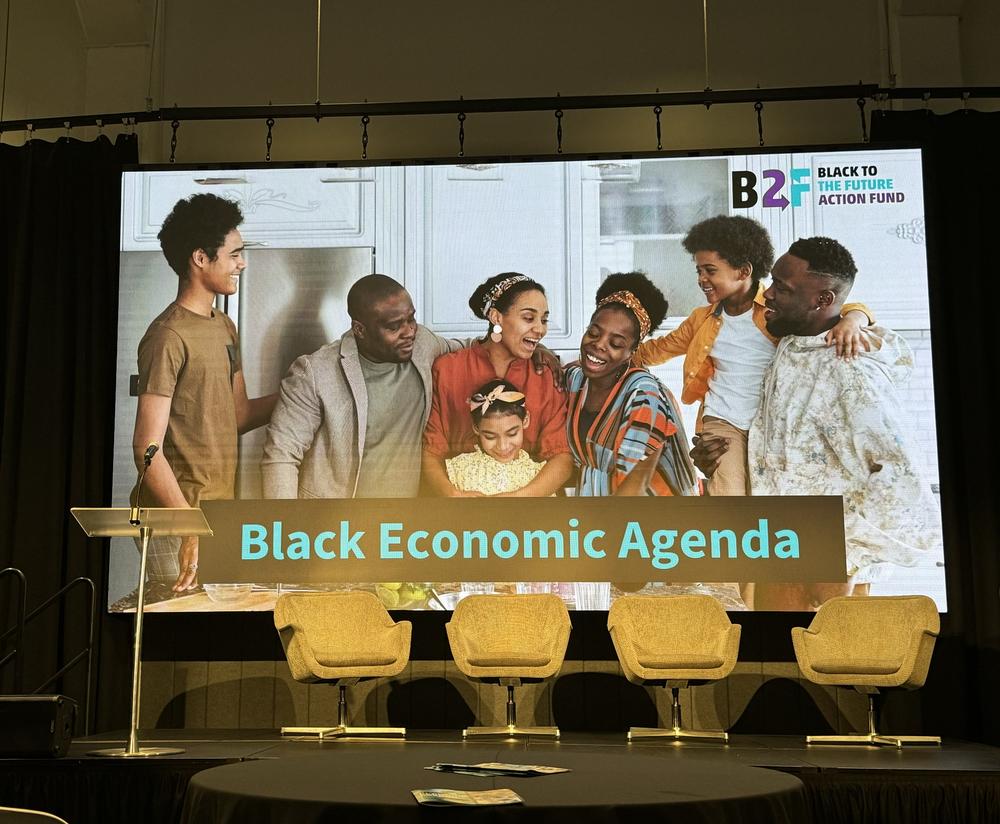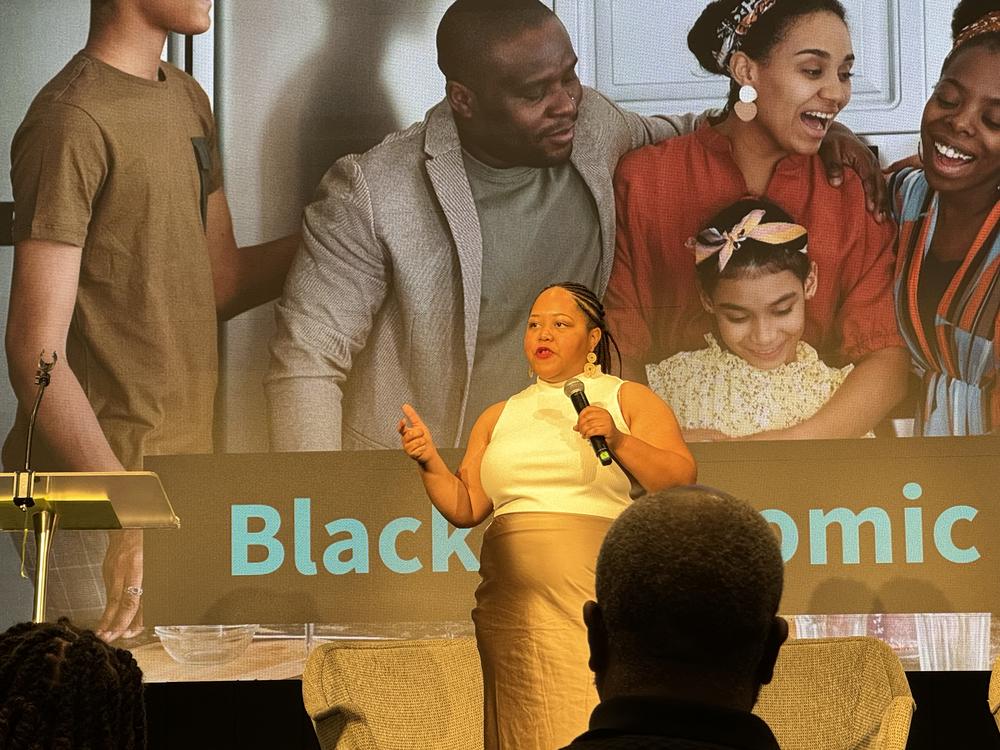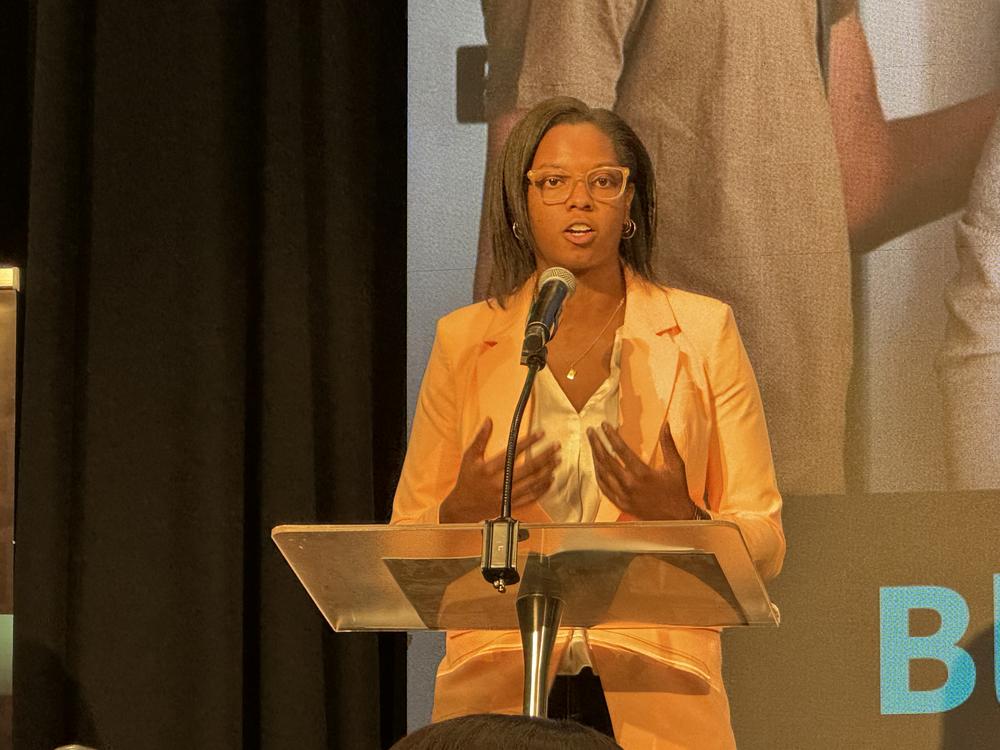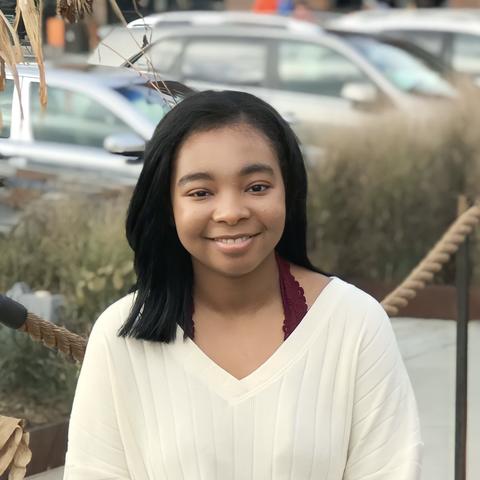
Section Branding
Header Content
Black Census Project releases Black Economic Agenda for lawmakers ahead of election season
Primary Content
LISTEN: Black to the Future Action Fund President Kristi Powell explains the organization's hope for the Black Economic Agenda.

As voters consider their options in the 2024 elections, political parties are reaching out to the Black communities for their support.
Candidates are vying to understand the Black community’s biggest concerns and priorities, like the economy, which initiatives like the Black Economic Agenda help summarize.
The host, the Black to the Future Action Fund, a 501(c)4 organization, revealed the Black Economic Agenda on August 8 at the Gathering Spot in Atlanta. With the agenda, the Black to the Future Action Fund is working to highlight the top economic issues for Black people, including wages, health care, taxes and more.
The Black Economic Agenda derives from the 2023 Black Census Project results, the largest survey of Black people in the U.S.
The Black Census Project surveyed over 200,000 Black people nationwide.

"We are not a monolith," said Kristi Powell, principal of Black to the Future Action Fund. "There's so many people talking at Black people about Black people and not to us, and it's so important that we tell the story of what we want, how we want it, and when we want it."
"We want legislators and policymakers across the county to be coming to Black to the Future Action Plan and ask us what is the role that's going to make sure that we are delivering for Black people." Alexis Rogers, political director of the Black To The Future Action Plan, also said.
The Black to the Future Action Fund shared that of the 17 most important problems concerning Black people in the survey, six were economic issues, four of which ranked within the top.
The economic issues include low wages, schools that fail to prepare Black children, lack of affordable housing, and lack of affordable health care.

"A lot of these issues are interconnected, so we can solve for housing, but we still don't have a good paying job. You might still have an issue when you get a good paying job, but the health care system is so broken that you can still can't live fully free," Rogers said.
The top priority of issues became the Black Economic Agenda.
"The Black Economic Agenda is an answer that if we can get organized and if we can build power, that we can actually transform Black communities," Powell said.
The BEA, per a press release statement, urges elected officials and governments to build Black economic power in wages and worker protections, thriving communities, and budget and taxes.
"Part of the reason why we developed a Black economic agenda in the way that we did is that it's comprehensive," Rogers shared. "It's not just saying economy means wages and jobs. We understand the economy also means can you get to work because you have child care that you can afford, and the child care workers also be paid appropriately."
Key issues of the agenda
The agenda focused on wages and workers protections, thriving communities and wages and budget.
38% of the survey respondents listed wages as too low to support families. Regarding worker protection, the B2F Action Fund calls for strengthening workplace protections and ensuring that people have paid family and medical leave.
To help Black communities thrive across the country, the BEA suggests making child care more affordable and fairer pay for childcare workers, investing in housing affordability, and medicaid expansion.
Black Census Project reports that 60% of survey respondents favored raising the taxes for individuals making $250,000 or more, especially for those living in areas where the cost of living is the highest throughout the U.S.
The BEA's solutions for taxes/budgeting include making income taxes fairer and more effective and creating a more equitable and transparent budget process, especially at the state and local level.
For the full Black Economic Agenda, read here.


